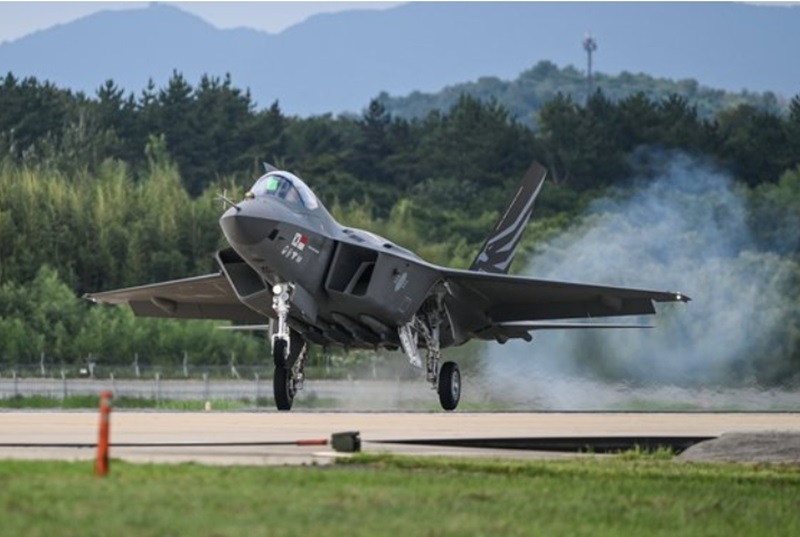A North Korean hacking group, known as “Kimsuky,” has reportedly attempted to breach a German defense company that supplies missiles for South Korea’s next-generation fighter jets, raising concerns over potential technology leaks.
The South Korean government is investigating whether North Korea was specifically targeting advanced technologies related to the KF-21, a Korean supersonic fighter jet.
According to German public broadcaster ZDF and the weekly magazine Der Spiegel, Diehl Defense, a leading German defense contractor, fell victim to a cyberattack from Kimsuky late last month.
The reports reveal that Kimsuky hackers disguised themselves as a major U.S. defense company, sending phishing emails to Diehl Defense employees, promising lucrative job opportunities.

Once recipients clicked on an attached PDF file, malware was automatically installed, enabling the hackers to steal sensitive information from the company’s personnel.
Diehl Defense’s flagship product, the IRIS-T short-range air-to-air missile, is designed for fighter jet deployment. The missile is set to be used on South Korea’s KF-21 Boramae supersonic fighter jets and Malaysia’s FA-50 light attack aircraft.
German media outlets noted that the hacking attempts began in May, coinciding with the successful test-firing of the IRIS-T missile by the KF-21. Analysts speculate that North Korea may have sought to steal critical military technologies related to fighter jets held by Diehl Defense.
A military source stated that the South Korean government is currently assessing the potential impact of Kimsuky’s cyberattack on domestic security. Depending on the findings, relevant agencies, including the Defense Acquisition Program Administration (DAPA), the Defense Security Command, and the National Intelligence Service, are expected to hold discussions to address the situation.
BY CHUNG YEONG-GYO [chung.yeonggyo@joongang.co.kr]


![Korean Woman Deported After Using Altered Passport Name Old and new Korean passport [JoongAng Photo]](https://www.koreadailyus.com/wp-content/uploads/2025/06/0630-passport-100x70.jpg)
![Korean homeless residents face eviction from LA-subsidized housing Hyun Park(left), a long-term resident of a homeless rental housing unit, speaks with KYCC Director Rick Kim (far right). [Sangjin Kim, The Korea Daily]](https://www.koreadailyus.com/wp-content/uploads/2025/06/0630-homeless-100x70.jpg)
